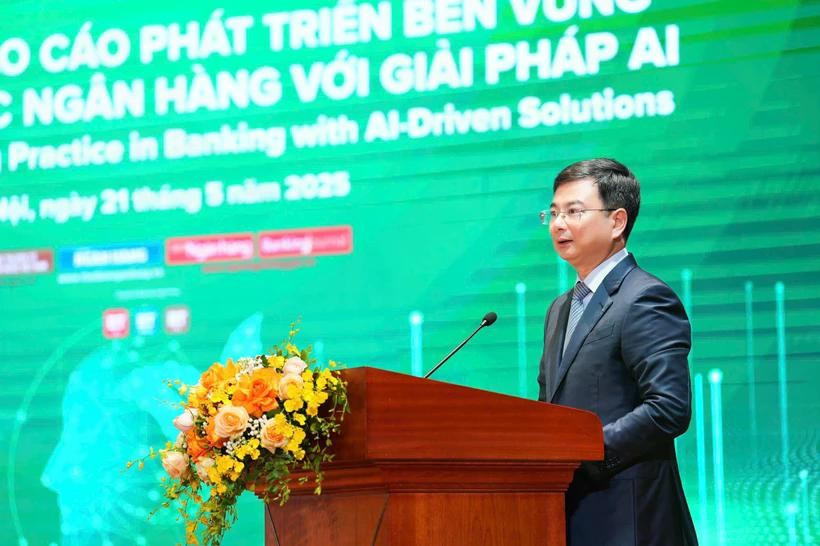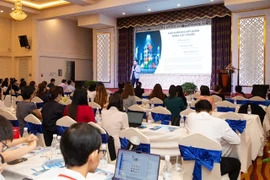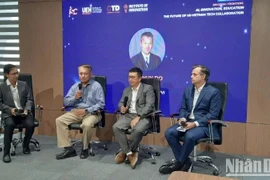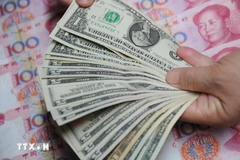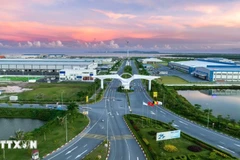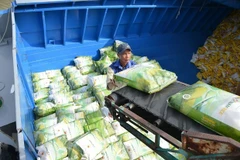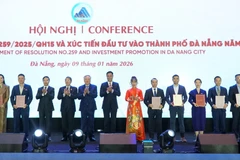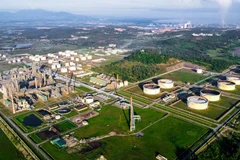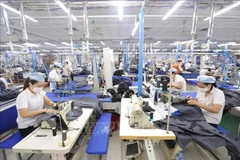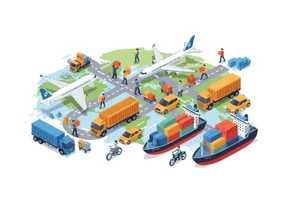Hanoi (VNS/VNA) - The practice and publication of a Sustainability Report (SR) in Vietnam, especially in the banking industry, is still in its initial stages and holds many challenges, the Deputy Governor of the State Bank of Vietnam Pham Thanh Ha told a forum on May 21.
But he added that the application of artificial intelligence (AI) and digital technologies is considered a key solution to help improve sustainability within the industry and should be widely applied.
Addressing the forum on sustainability reporting in banking, with AI-driven solutions, held in Hanoi, the Deputy Governor said that in the digital age, especially AI, the banking industry, which is considered the lifeblood of the economy, is facing an urgent need to innovate.
“Sustainability has gone beyond the scope of a trend and become a core part of the development strategy of the finance and banking industry. In particular, the development and publication of the SR is an important tool for financial institutions to demonstrate their commitments, make their operations transparent, and affirm their pioneering role in the process towards a green and inclusive economy,” Ha said.
However, Ha noted: “The practice and publication of the SR in the banking industry is still in its early stages. Challenges in the legal framework, resources, data analysis capacity and especially the way to collect and process information effectively and transparently, are still significant barriers to promote SR.
"Therefore, the application of AI and digital technology is a potential solution to the above problems. AI not only helps automate data collection and synthesis, but also supports in-depth analysis, trend detection and makes recommendations to improve sustainable reporting quality and governance effectiveness.”
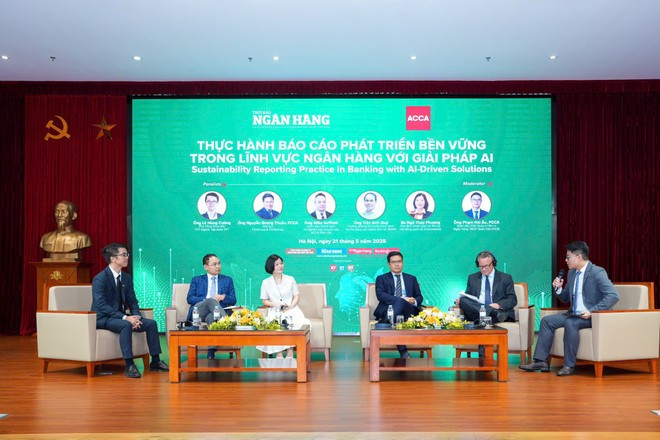
Speaking at the event, the Director of the Association of Chartered Certified Accountants (ACCA)’s Policy & Insights, Mike Suffield, said that technology is supporting the evolution of sustainability reporting in many different ways. Much of sustainability reporting is fundamentally data-driven. Data that can come from all sorts of different sources and data that can be new to the organisation and hasn't even been collected before.
“Using manual processes to handle a large amount of data is simply not viable, if not impossible. So we encourage organisations to invest in technology, to use automation and data analytics tools where possible, to collect data and analyse them, to produce insights, to decision-making and for reporting.
“Leveraging AI in producing sustainability information may enhance efficiency, accuracy and also strategic decision making. The selection of the right technology option for the organisation will depend on its size and complexity and the sustainability information that it needs to produce,” Mike said.
According to the director, the ACCA has produced a guide to prepare for sustainability reporting, which has at its heart an eight-stage process, including allocating responsibility for sustainability reporting, establishing the reporting landscape, determining the material sustainability-related information to be reported, determining the data requirements, collecting and then reporting on the data, helping enablers with a plan, technology and people and verification and continual improvement.
Regardless of the size, enterprises can follow the guide as they start to embark on the process of identifying, gathering, analysing and then publishing sustainability information, Mike said.
The Deputy General Director of FPT Digital, Dr Le Hung Cuong, said at the forum that: “The world trend is shifting from ‘voluntary’ to ‘must have’ for the publication of sustainable development reports, however, Vietnamese businesses still face many difficulties in collecting and analysing data."
According to Cuong, a survey of more than 200 businesses in Vietnam showed that 67 businesses have not yet or have just identified some indicators related to ESG; 47% of businesses do not clearly understand how to collect and process ESG data; 71% of businesses are not equipped with enough knowledge about the necessary data for reporting; and 70% of businesses do not have or rarely disclose ESG reports.
“ESG data is scattered in different key areas in the operation and management of the business, so it needs to be accurately identified and separated. Meanwhile, AI is the key to helping businesses solve ESG data challenges, simplify reporting activities, thereby unlocking green capital from financial institutions and banks,” Cuong said.
He also shared international experience on the issue. For example, he said, the Monetary Authority of Singapore (MAS) uses AI to score ESG reports of SMEs, which help significantly reduce loan approval time, increase access to green capital for SMEs, and help banks comply with ESG reporting requirements more effectively.
At the event, director of the SBV’s Policy Credit Division Tran Anh Quy, reported that about 13-15 commercial banks have so far published their independent SR.
By March 31, 2025, 58 credit institutions had a green debts of more than 704.2 trillion VND, an increase of 3.57% compared to the end of 2024; while 57 credit institutions assessed environmental and social risks with outstanding loans of more than 3.62 quadrillion VND, Quy said./.
